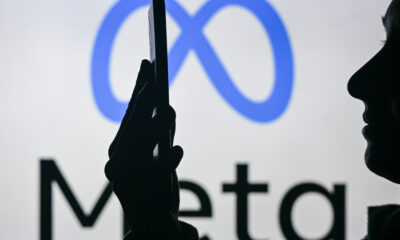
Featured Item

WhatsApp messages use Jewish community to sow divisions
As social media in South Africa last week became a minefield of fake news and incitement amidst civil unrest, one WhatsApp user attempted to draw the South African Jewish community into the fray.
Messages written by someone who called himself “Ari Goldberg – Israeli peacekeeper” were full of profanities and hate speech against the Indian community, including the line, “The Jews in Israel will kill you.”
They were posted with images of Israeli flags on a group called “Durban Support”. According to a member of the group, most of the people on it were members of the Indian community.
The person also changed the topic of the group from “Durban Support” to “Mossad is watching you!” and “SA must burn and die”. Members of the group told its admin to remove the user, which it did. However, the damage he caused may have the long-term effect of sowing divisions between the Jewish and Indian communities where none existed before.
The messages were shared with SA Jewish Report chairperson and tech guru Howard Sackstein, who immediately tried to put out the fire by emphasising that they were created to sow division and hatred at a time when communities are feeling vulnerable.
“This is clearly fake nonsense specifically sent to try ferment racial hatred,” he responded to the person who queried it. “It’s quite obvious from the following – the guy claims to be an ‘Israeli peace keeper’, but Israel doesn’t deploy peace keepers anywhere. The number used [to send the messages on WhatsApp] is American, not Israeli. India and Israel have a very close relationship.
“The telephone number is unlisted on True Caller, which means it has been used specifically to send this message – a clear sign of someone trying to incite hatred. People who use fake numbers would never put their names to a message.
“The number is registered in Sioux Falls South Dakota, United States,” Sackstein said. “I have searched, and there appears to be no Jewish community in Sioux Falls South Dakota. I have googled, and there is no Ari Goldberg in Sioux Falls South Dakota. All this means is that someone thinks this is a good time to try create racial hatred between Jews and Indians where none exists. One has to ask, what sort of sick person would do this?”
He requested that his message be sent to the WhatsApp group where the ugly messages were posted. “People must know that political looters and criminals must be exposed and dealt with. I have been to India four times, and many of my close friends are Indian – no fake instigator will ever drive a wedge between us.”
So, why would someone create a message like this, hoping to stir up hatred and divisions between Jews and Indians? “In vulnerable times like last week, we see the best and worst in people,” said local social-media expert Sarah Hoffman. “We have witnessed people trying to rebuild, but we’ve also witnessed existing prejudices and burning hatred. When people are under pressure, it’s an opportune time to make such kind of comments.” She encouraged people to disassociate themselves actively from such comments if they are shared on a WhatsApp group, and to encourage the group admin to block the user.
In the wider context, “We have seen massive polarisation of society globally, as witnessed during elections in the United States and Israel, and in political divisions in South Africa,” said local tech expert Arthur Goldstuck. “As a result, individuals feel emboldened to stir the pot with a mixture of their own bigotry and their desire to see the worst happen to the ‘other’. Refusal to acknowledge the rights of those with different views is a ‘pandemic’ in itself. Our own community witnesses this daily, as do others, and religious and political leaders don’t have the emotional intelligence to understand their own roles in either condoning or failing to condemn such attitudes.
“You don’t have to be an extremist to be a bigot, and that’s part of the problem,” he said. “Ordinary people who see themselves as decent and even reasonable develop blind spots when it comes to other races, nationalities, and political views. Blind support of populist leaders has created a massive us-and-them crisis in which everyone loses. The resultant chaos allows agents provocateur to behave with impunity, confident they won’t have to face consequences, and relish in their apparent power to sow further division.
“Multicultural society is detested by bigots, and the antipathy towards multiculturalism in our own community provides fuel for the expression of hatred towards others. Only if we move from an ‘us-and-them’ mentality to a ‘we’ mentality can we reduced bigotry.”
Said Karen Allen, senior research advisor on emerging threats in Africa at the Institute for Security Studies, “We see this [kind of message] at times of heightened tension and unrest. People stir the pot by tossing divisions into the mix, especially when they are feeling vulnerable. For example, we saw it during the xenophobic attacks or at the beginning of the COVID-19 pandemic. Often there are more users on these platforms during difficult times, so it’s an opportunity to amplify messages. They aim to drive divisions at certain points in time.
“Also, social media allows for a much wider reach. Imagine that this person took to the streets of Durban with a loudhailer, he would reach only a certain number of people,” she said. “But on social media, the way the algorithm is designed, it amplifies such messages. So even if you share this message online to say it’s awful, the fact that you shared it propels it further.”
Therefore, she advises that users don’t re-share something abusive or hateful, even if it’s to criticise it. “South Africa is a divided country,” she said. “Touchstone issues include race and sometimes the divisions between certain communities. The fact that social media and messaging platforms can be anonymous means that often there’s little consequence for it.”
However, South Africa’s new Cybercrimes Act, which has just been signed into law, may start to have an impact. “Malicious communications on social-media platforms are offences under the Act. Part two of the Act makes it an offence to incite damage to property or threaten to damage property or persons,” Allen said.
Furthermore, “if tweets, messages, or conversations include fake or deliberately manipulated images, the offences may amount to cyber forgery. Simply re-sharing deliberately manipulated content that is malicious could make any one of us unwittingly assistants in committing a crime.”
Sackstein said that these messages aren’t necessarily created to support one side or the other, but to “create as much chaos as possible, because if you destabilise your opponent, it weakens them”. That’s why someone writing a message like this may be a person who would “benefit from additional racial strife”, and the Jewish community is just a tool for them to achieve that. Tomorrow, they could post a similar message trying to create discord amongst other communities.
“It’s important that we understand the context and the dangers. It’s a deliberate attempt to sabotage. Be very careful what you share or forward as you are possibly being manipulated,” he said.
Meanwhile, Police Minister Bheki Cele said in a speech on 13 July, “We issue a stern warning to those circulating inflammatory messages on social-media platforms which are aimed at inciting violence and disregard of the law. Those who engage in such acts will be liable for criminal offence and can receive a fine or be sentenced to imprisonment for a period not exceeding three years.”










